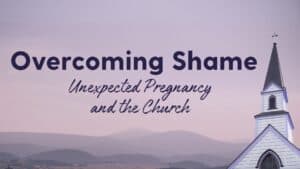
Dads Parent Differently Than Moms
Father’s unique contributions to parenting will benefit his children.
Urgent Need: As the back-to-school season begins, families are facing mounting pressure—tough choices, cultural confusion, and strained relationships.
Will you make a gift before August 31 to help provide Christ-centered support in this critical season?

Fathers are just as essential to healthy child development as mothers. Psychology Today explained, “Fatherhood turns out to be a complex and unique phenomenon with huge consequences for the emotional […]
Fathers are just as essential to healthy child development as mothers. Psychology Today explained, “Fatherhood turns out to be a complex and unique phenomenon with huge consequences for the emotional and intellectual growth of children.”“Shuttle Diplomacy,” Psychology Today, July/August 1993, p. 15.
Erik Erikson, a pioneer in the world of child psychology, asserts that a father’s love and a mother’s love are qualitatively different. Fathers “love more dangerously” because their love is more “expectant, more instrumental” than a mother’s love.As cited in Kyle D. Pruett, The Nurturing Father, (New York: Warner Books, 1987), p. 49. A father brings unique contributions to the job of parenting a child that no one else can replicate. Following are some of the most compelling ways that a father’s involvement makes a positive difference in a child’s life.
Fathering expert Dr. Kyle Pruett explains that fathers have a distinct style of communication and interaction with children. By eight weeks of age, infants can tell the difference between their mother’s and father’s interaction with them.
This diversity, in itself, provides children with a broader, richer experience of contrasting relational interactions. Whether they realize it or not, children are learning, by sheer experience, that men and women are different and have different ways of dealing with life, other adults and children. This understanding is critical for their development.
Fathers tickle more, they wrestle, and they throw their children in the air (while mother says . . . “Not so high!”). Fathers chase their children, sometimes as playful, scary “monsters.”
Fathering expert John Snarey explains that children who roughhouse with their fathers learn that biting, kicking and other forms of physical violence are not acceptable.John Snarey, How Fathers Care for the Next Generation: A Four Decade Study (Cambridge: Harvard University Press, 1993), p. 35-36. They learn self-control by being told when “enough is enough” and when to settle down. Girls and boys both learn a healthy balance between timidity and aggression.
Go to any playground and listen to the parents. Who is encouraging kids to swing or climb just a little higher, ride their bike just a little faster, throw just a little harder? Who is encouraging kids to be careful? Mothers protect and dads encourage kids to push the limits.
Either of these parenting styles by themselves can be unhealthy. One can tend toward encouraging risk without consideration of consequences. The other tends to avoid risk, which can fail to build independence and confidence. Together, they help children remain safe while expanding their experiences and increasing their confidence.
A major study showed that when speaking to children, mothers and fathers are different. Mothers will simplify their words and speak on the child’s level. Men are not as inclined to modify their language for the child. The mother’s way facilitates immediate communication; the father’s way challenges the child to expand her vocabulary and linguistic skills — an important building block of academic success.
Educational psychologist Carol Gilligan tells us that fathers stress justice, fairness and duty (based on rules), while mothers stress sympathy, care and help (based on relationships). Fathers tend to observe and enforce rules systematically and sternly, teaching children the consequences of right and wrong. Mothers tend toward grace and sympathy, providing a sense of hopefulness. Again, either of these disciplinary approaches by themselves is not good, but together, they create a healthy, proper balance.
Involved dads help children see that attitudes and behaviors have consequences. For instance, fathers are more likely than mothers to tell their children that if they are not nice to others, kids will not want to play with them. Or, if they don’t do well in school, they will not get into a good college or secure a desirable job. Fathers help children prepare for the reality and harshness of the world.
Men and women are different. They eat differently. They dress differently. They cope with life differently. Girls and boys who grow up with a father are more familiar and secure with the curious world of men.
Girls with involved, married fathers are more likely to have healthier relationships with the opposite sex because they learn from their fathers how proper men act toward women. They know which behaviors are inappropriate.
They also have a healthy familiarity with the world of men — they don’t wonder how a man’s facial stubble feels or what it’s like to be hugged by strong arms. This knowledge builds emotional security and safety from the exploitation of predatory males.
Boys who grow up with dads are less likely to be violent. They have their masculinity affirmed and learn from their fathers how to channel their masculinity and strength in positive ways. Fathers help sons understand proper male sexuality, hygiene and behavior in age-appropriate ways. As noted sociologist David Popenoe explains, “Fathers are far more than just ‘second adults’ in the home. Involved fathers — especially biological fathers — bring positive benefits to their children that no other person is as likely to bring.”David Popenoe, Life Without Father (New York: The Free Press, 1996), p. 163.
Copyright © 2004 Focus on the Family. All rights reserved. International copyright secured.





Glenn T. Stanton is the director of Global Family Formation Studies at Focus on the Family. He debates and lectures extensively on the issues of gender, sexuality, marriage and parenting at universities and churches around the world.
Stanton also served the George W. Bush administration for many years as a consultant on increasing fatherhood involvement in the Head Start program.
Stanton is the author of nine books and is senior contributor to the Federalist blog. His latest book is“The Myth of the Dying Church: How Christianity is Actually Thriving in America and the World.” He is also the co-writer of “Irreplaceable” a film seen in theatres nationwide, and the co-author and creator of “The Family Project,” a 12-session small group DVD curriculum produced by Focus on the Family.
Stanton earned bachelor’s degree in philosophy, communication arts and religion and a master’s degree in philosophy, history and religion from the University of West Florida.

Father’s unique contributions to parenting will benefit his children.

Help your child embrace God as his or her heavenly Father.

The pregnancy test was positive. I cried. Pregnancy wasn’t in my plans, because I recently quit my job for full-time entrepreneurship. After telling the father of my twins I was